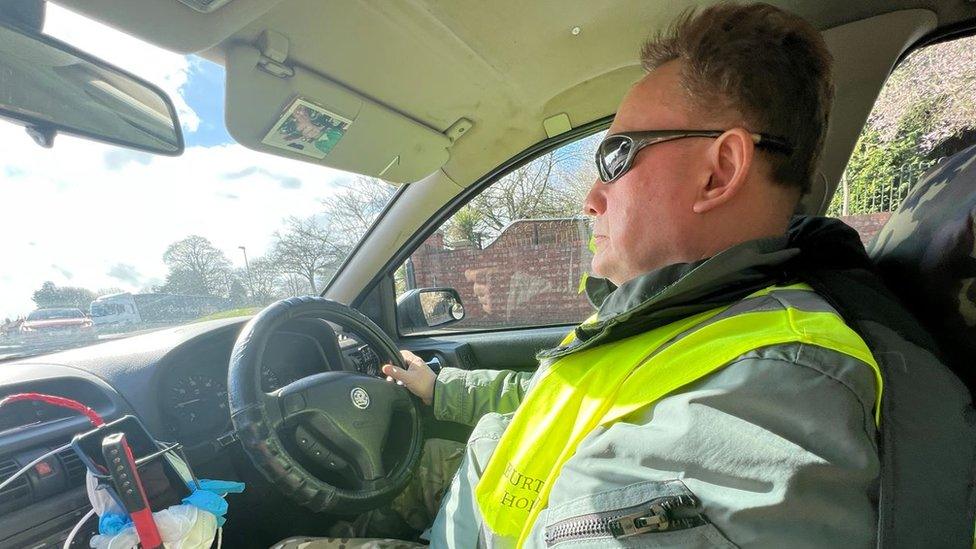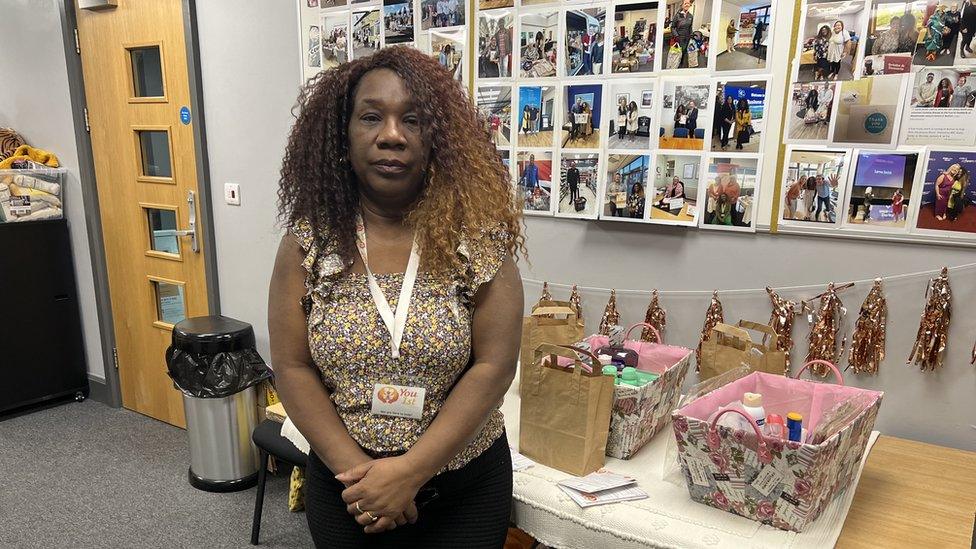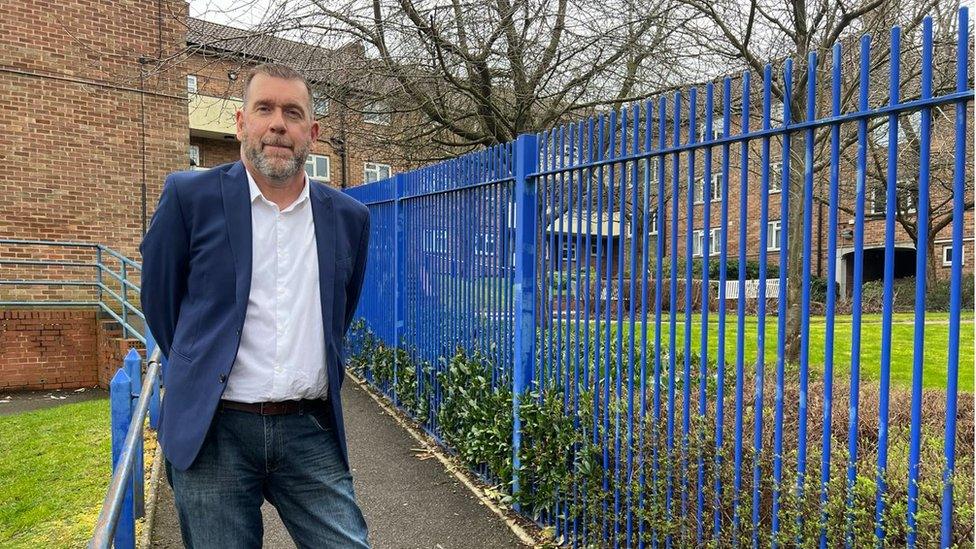Fears in Burton for safety of cuckooing criminals' victims
- Published

John Anderson, the chairman of Burton Hope, says victims include people with autism
Community groups say they fear for the wellbeing of vulnerable people due to rising levels of so-called cuckooing in Staffordshire.
Cuckooing refers to taking advantage of such individuals by using their properties for criminal activity, particularly county lines drug trading.
The cost-of-living hike plus isolation following the coronavirus pandemic could be to blame, campaigners say.
Staffordshire Police says work to disrupt the practice continues.
Meanwhile, a social housing group has confirmed its involvement in trying to resolve a number of cuckooing cases after seeing a steady increase.
Figures on cuckooing, however, are difficult to obtain as records are obscured due to it not being treated as a crime in its own right.
Campaigners have called for the Modern Slavery Act to be amended to include cuckooing as a specific offence.
John Anderson, chairman of charity Burton Hope, which works to get vulnerable people the help they need and raise awareness of their plight, says he is aware of a number of cuckooing cases across Burton, including victims with autism and those with addiction issues.
"These are people who are very easy to take advantage of. The perpetrators convince them they're their friends," he said.
Mr Anderson added: "[One victim] is severely autistic and he knew in his mind the situation he was in was wrong… he just couldn't take anymore.
"They've now gone, [but] they defecated and urinated in his house, broke things, generally trashed his house. He was doing okay before this happened."
Out of fear of being attacked, Mr Anderson says, the man now rarely leaves the house and will not let cleaners into the property due to his distrust.
He added the police seemed to have limited powers to act.

Lorna Smith, who runs a food bank in Burton, says cuckooing perpetrators take advantage of victims by offering to pay their bills
Lorna Smith, who runs a foodbank in Burton, is also aware of cuckooing cases, citing widespread financial difficulty.
She said: "[Perpetrators] know that people are struggling so they're offering them money… 'can we use your accommodation for a couple of weeks and we'll help you with your gas bill, your electric bill, food'… and then they get into a situation where they can't get these people removed from their property.
"This person said to me 'I know they'll be gone in two weeks, I can feed my kids, they're only using one room, and that's one less thing to worry about'. Then the number of people in the property doubled."

Trent and Dove Housing has been working with police to tackle the issue, its neighbourhoods director Martyn Hale says
Martyn Hale, neighbourhoods director at Trent and Dove Housing, the main social landlord in Burton, said the body was dealing with a steady increase in cuckooing and was currently involved in trying to resolve a number of cases.
He says the association works with the police to take enforcement action to remove criminals from properties and move victims to safe, alternative accommodation - but accepts it is not a quick process.
"Can we do more? Absolutely," he said.
"But sometimes it's about getting the evidence and going through the appropriate process."
A Staffordshire Police spokesperson said officers "act on intelligence gathered and frequently carry out enforcement activity".
They added: "Officers carry out regular patrols in the area to deter and detect criminal behaviour and offer reassurance to the community."

Follow BBC West Midlands on Facebook, external, Twitter, external and Instagram, external. Send your story ideas to: newsonline.westmidlands@bbc.co.uk, external